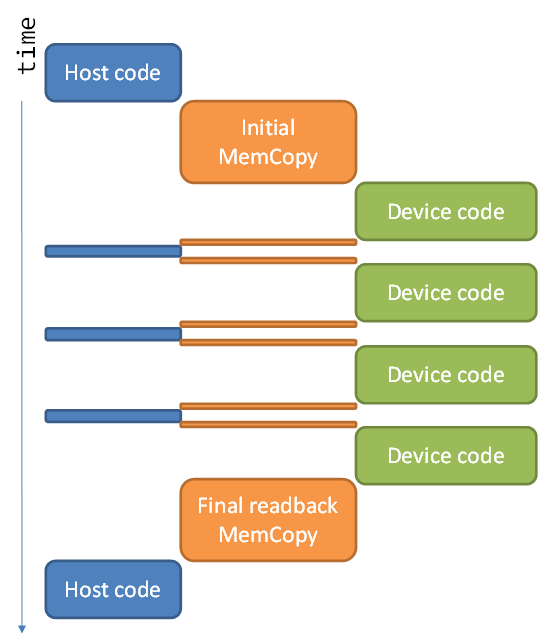The concept of intrinsics allows extensions and more control on how the code is generated. We also extend this concept for existing methods for which we do not have control on the code. The equivalent of the attribute is described in a builtin file. This allows the use of Console.Out.Write and generate printf. It also allows us to use System.Math.Exp which would be replaced by exp from cmath.
[EntryPoint("TestPrintf")]
public void testPrintf()
{
Console.Out.WriteLine(
"Comment from Thread {0} Block {1}",
threadIdx.x, blockIdx.x);
}
[EntryPoint("TestExp")]
public void TestExp()
{
exp = System.Math.Exp(1.0);
}

